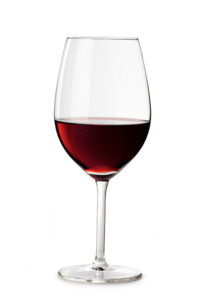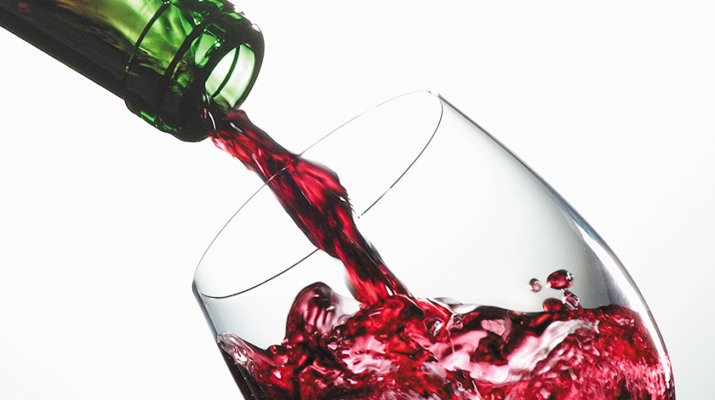Well, not even a glass of wine once in a while is good for your health, says local doctor
By Deborah Jeanne Sergeant
 Do you recall hearing that a glass of wine a day supports heart health?
Do you recall hearing that a glass of wine a day supports heart health?
As it turns out, “it’s not even clear red wine is beneficial,” said Mike Merrill, physician and internist and chief medical officer of Brook Health. “The core thinking now is alcohol is overall not beneficial. That’s the consensus.”
Merrill serves as associate clinical professor of epidemiology at UB.
He added that alcohol contributes excess calories to the diet, which can make it easy to gain weight. Consider the foods typically accompanying alcohol in social settings, such as cheese with wine or greasy “bar foods” with beer. These pairings can also ramp up calorie intake.
Consuming alcohol regularly also saps the food budget.
“You’ll have better nutrition if you switch to better food than alcohol,” Merrill said. “It’s expensive and you could spend your money better ways.”
He sees no improvement for longevity. Instead, drinking alcohol increases the risk of some cancers and some heart problems.
“If you drink excessively, that leads to risk of liver disease like cirrhosis and cancer,” Merrill said. “It can lead to some severe psychiatric problems and personality change. You’re at risk of alcohol withdrawal, which can be life-threatening. If you have to go into the hospital for surgery, it will be pushed out as they have to treat the alcohol withdrawal.”
Any health benefit arising from happy hour is likely because of socializing but not the alcohol itself. Grapes contain the beneficial resveratrol that wine contains. This compound is known as an antioxidant and may lower cholesterol, reduce risk of heart attack, stroke and lower blood sugar levels. But eliminate or at least minimize alcohol.
“Even one drink a day increases breast cancer risk in women by 14%,” said Kerry Graff, physician and independent contractor in lifestyle medicine in Rochester. “It turns to formaldehyde. You see this even in wine tasters who spit it out. If you look at it overall, it’s not health promoting. If you want to include it, it’s a choice but not because it’s healthy. It’s a calculated risk; you don’t
drink for good health. Wine itself is not healthy.”
As the body ages, alcohol can increase the risk for falls. Within a year, older adults who fracture a hip have a 21% risk of death after a surgical repair and a 70% chance of death if it’s not surgically repaired, according to Acta Orthopaedica, an orthopedic trade journal published internationally.
“Your balance gets worse as you age,” Graff said. “Your reaction time is slower. Your feet aren’t as good. Your nerves aren’t as good. Add alcohol to that and it’s much more prominent.”
For those who choose to imbibe, the recommendation is no more than one drink per day for women and no more than two for men.
“If you’re not already drinking alcohol, there is no benefit to start drinking for heart health,” said Melissa Verdi, registered dietitian nutritionist at Lifestyle Nutrition WNY, PLLC in Niagara Falls.
She added that drinking alcohol is linked to liver issues and heart problems, among other problems.
Logan Walker, physician at UBMD Family Medicine, calls alcohol consumption a “modifiable risk” for health.
“Our genes only account for 10% of the expression of cancer and any type of illness,” he said. “Lifestyle and environment account for 90% of the risk for expression.”
Walker explained how alcohol affects the system.
“Within 30 minutes of ingesting, there are negative microbiome changes that are pro-inflammatory,” he said. “Alcohol also causes damage to cells in the GI tract. It can increase the risk of autoimmune conditions and decrease nutrient absorption. It’s a toxin that increases the workload on the liver and burdens the kidneys.”
These negative effects are cumulative after decades of drinking alcohol, especially when consumed in excess. Choosing to not imbibe may not reverse damage already done, but it prevents further damage.
“It gives us the power in our hands that if we make changes, our genes aren’t our destiny,” Walker said.

